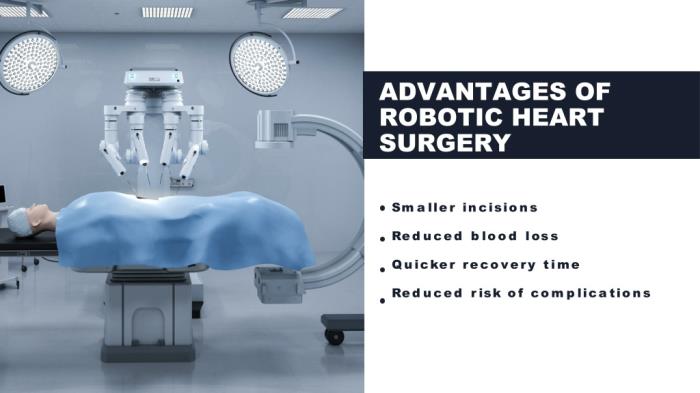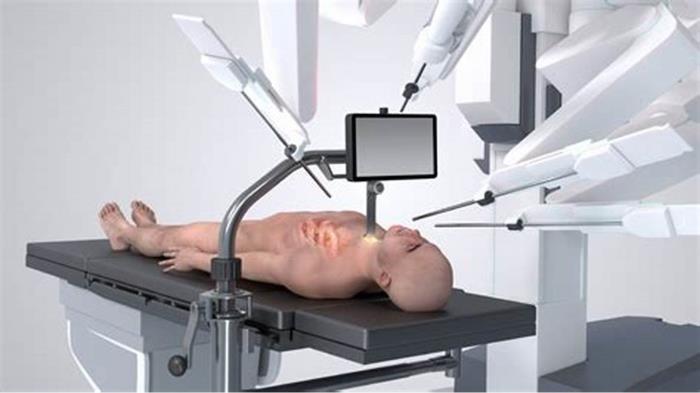Robotic heart surgery has emerged as a groundbreaking advancement in the field of cardiac care, revolutionizing how various heart conditions are treated. This minimally invasive approach utilizes advanced robotic systems to enhance the surgeon's precision and control, resulting in improved outcomes and reduced recovery times for patients. By providing a detailed overview of robotic heart surgery, including its operation, benefits, and associated risks, individuals can better understand its significance in modern medical practice.
Medical disclaimer: This content is for general awareness and does not replace a doctor’s consultation. For diagnosis or treatment decisions, consult a qualified specialist.
Overview of Robotic Heart Surgery: How It Works
Robotic heart surgery involves the use of sophisticated robotic systems that allow surgeons to perform complex cardiac procedures through small incisions. The surgeon controls the robotic arms from a console equipped with high-definition, three-dimensional visualization, which provides an enhanced view of the surgical site. This technique not only minimizes trauma to surrounding tissues but also enables greater dexterity and accuracy during surgery. Procedures commonly performed using robotic assistance include coronary artery bypass grafting, valve repairs, and atrial septal defect closures.
Common Benefits of Robotic Heart Surgery
The benefits of robotic heart surgery are numerous and contribute to its growing popularity in cardiac care. One of the most significant advantages is the minimally invasive nature of the procedure, which results in smaller incisions, reduced pain, and quicker recovery times compared to traditional open-heart surgery. Patients often experience shorter hospital stays, less scarring, and a faster return to normal activities. Additionally, the precision of robotic techniques can lead to improved surgical outcomes, including enhanced heart function and reduced risk of complications.

General Risks Associated with Any Heart Surgery
While robotic heart surgery offers many advantages, it is essential to acknowledge that all surgical procedures carry inherent risks. Common risks associated with heart surgery include infection, bleeding, and adverse reactions to anesthesia. Patients may also experience complications related to the heart itself, such as arrhythmias or myocardial infarction (heart attack). Understanding these risks is crucial for patients considering any form of heart surgery, including robotic techniques.
Specific Risks of Robotic Heart Surgery
Robotic heart surgery, although minimally invasive, is not without its specific risks. Some patients may experience complications related to the robotic equipment, such as malfunction or technical difficulties during the procedure. Additionally, the learning curve associated with new technologies means that outcomes may vary based on the surgeon's experience with robotic techniques. Therefore, it is vital for patients to discuss their surgeon's expertise in robotic heart surgery and any potential risks before undergoing the procedure.
Anesthesia-Related Complications: What to Know
Anesthesia is a necessary component of most surgical procedures, including robotic heart surgery. However, it carries its own set of risks, which can range from mild side effects to severe complications. Potential anesthesia-related issues may include allergic reactions, respiratory problems, and cardiovascular instability. Patients should be informed about these risks and engage in thorough discussions with their anesthesiologist to ensure a safe surgical experience. Understanding these factors can help alleviate patient anxiety and contribute to better overall outcomes.
Risks of Bleeding During and After Robotic Surgery
Bleeding is a common risk associated with any surgical procedure, including robotic heart surgery. During the operation, the surgical team takes measures to minimize blood loss; however, complications can still arise. Postoperative bleeding may occur, necessitating further intervention, such as blood transfusions or additional surgeries. Patients should be aware of the signs of excessive bleeding and the importance of monitoring their recovery closely. Careful preoperative assessments and meticulous surgical techniques can help mitigate this risk, ensuring a smoother recovery process.
Infection Risks: Minimizing Potential Post-Surgical Infections
Infection risks following any surgical procedure, including robotic heart surgery, are a significant concern. The minimally invasive nature of robotic surgery can reduce the risk of infection, but it is not entirely eliminated. To minimize the potential for infections, strict sterile techniques must be followed during the procedure, and patients should adhere to postoperative care instructions, including proper wound care and hygiene practices.
Damage to Surrounding Structures: A Rare but Serious Concern
Although robotic heart surgery is designed to be precise, there remains a small risk of damage to surrounding structures, such as blood vessels, nerves, or organs. Such complications, while rare, can lead to significant postoperative issues. Surgeons mitigate this risk through careful planning and the use of advanced imaging techniques, ensuring the surgical approach is as safe as possible.
Surgical Site Complications: Wound Healing Issues
Surgical site complications, including poor wound healing, can occur after robotic heart surgery. Factors such as infection, patient comorbidities, and inadequate blood flow can impede healing. It is essential for patients to follow their surgeon's instructions regarding wound care, monitor the surgical site for signs of infection, and attend all follow-up appointments to ensure proper recovery.

Risk of Arrhythmias: Monitoring Heart Rhythm Post-Surgery
Patients who undergo robotic heart surgery may experience arrhythmias as a postoperative complication. These disturbances in heart rhythm can occur due to the stress of surgery or manipulation of cardiac tissues. Continuous monitoring in the postoperative period is critical for detecting and managing any arrhythmias early, as prompt treatment can prevent more serious complications.
Potential for Longer Surgery Duration: Impact on Recovery
While robotic heart surgery is often associated with shorter recovery times, there is a potential for longer surgery duration due to the complexity of the procedure or unforeseen complications. Extended surgery times can impact recovery, leading to increased risk of infection and longer hospital stays. Proper preoperative planning and surgeon experience play crucial roles in minimizing this risk.
Risk Factors That May Increase Complications
Several risk factors can elevate the likelihood of complications during or after robotic heart surgery. These may include obesity, diabetes, smoking, and advanced age. Patients should discuss their individual risk profiles with their healthcare team to understand how these factors might affect their surgery and recovery.
Importance of a Skilled Surgical Team in Mitigating Risks
The expertise of the surgical team is paramount in reducing risks associated with robotic heart surgery. A skilled and experienced team can navigate potential complications more effectively, ensuring optimal outcomes for patients. Continuous training and adherence to best practices in robotic surgery enhance patient safety and care.
Postoperative Care: Managing Risks After Surgery
Effective postoperative care is crucial for managing risks after robotic heart surgery. This includes pain management, monitoring vital signs, ensuring proper wound care, and encouraging mobility to prevent complications such as deep vein thrombosis. Patients should be proactive in their recovery and communicate any concerns with their healthcare providers promptly.
Recognizing Signs of Complications Early
Patients and their families should be educated on recognizing early signs of complications following robotic heart surgery. Symptoms such as increased pain, fever, swelling at the surgical site, or unusual heart rhythms warrant immediate medical attention. Early detection of complications can significantly improve outcomes and reduce the need for additional interventions.
The Role of Patient Education in Understanding Risks
Patient education plays a vital role in understanding and mitigating surgical risks. By informing patients about potential complications, recovery processes, and self-care strategies, healthcare providers empower them to take an active role in their recovery. Knowledgeable patients are more likely to adhere to postoperative instructions and recognize concerning symptoms.
Long-Term Outcomes and Risks of Robotic Heart Surgery
Long-term outcomes for patients who undergo robotic heart surgery are generally favorable, with many experiencing improved quality of life and reduced symptoms. However, it is essential to acknowledge that there may be risks associated with long-term complications, including the potential for recurrent arrhythmias or the need for further interventions. Regular follow-up care is important for monitoring heart health post-surgery.
Making Informed Decisions: Weighing Risks and Benefits
Patients should carefully weigh the risks and benefits of robotic heart surgery in consultation with their healthcare providers. Understanding the potential complications and comparing them with the expected benefits, such as reduced recovery time and minimally invasive techniques, can help patients make informed decisions regarding their treatment options.
Signs and Symptoms Indicating the Need for Robotic Heart Surgery
Learn to recognize the signs and symptoms that may indicate a need for robotic heart surgery. This section outlines common cardiac issues, patient experiences, and when it’s crucial to consult a healthcare provider for further evaluation.
Common Conditions Treated with Robotic Heart Surgery
Discover the common conditions that robotic heart surgery can address. This section details various heart diseases and structural abnormalities that can be effectively treated using robotic techniques, offering patients less invasive options with shorter recovery times.
Conclusion: Staying Informed About Surgical Risks
Staying informed about the risks associated with robotic heart surgery is essential for both patients and healthcare providers. Through education, open communication, and proactive management, the likelihood of complications can be reduced, leading to better outcomes and improved recovery experiences for patients.
Best Robotic Heart Surgery in India
The Best Robotic Heart Surgery in India offers a minimally invasive approach to complex heart procedures, utilizing robotic technology to improve precision and reduce recovery time.
Robotic Heart Surgery Cost in India
The robotic heart surgery cost in india is competitive, offering patients affordable options for high-precision heart surgery with transparent pricing and accessible care.
Best Robotic Heart Surgeons in India
The Best Robotic Heart Surgeons in India are highly trained in robotic techniques, providing personalized care and expert precision in complex heart surgeries.
FAQ
What are the most common complications of robotic heart surgery?
Common complications may include infection, arrhythmias, bleeding, and issues related to wound healing. Each patient’s risk may vary based on individual health factors.
How does the risk of infection compare between robotic and traditional heart surgery?
Robotic heart surgery typically offers a lower risk of infection due to smaller incisions, but infection risks still exist and must be managed appropriately.
What should I watch for in the days following robotic heart surgery?
Monitor for signs of infection (such as redness, swelling, or discharge from the incision site), increased pain, fever, and any unusual heart rhythms.
Are there specific risk factors that could make robotic surgery riskier?
Yes, factors such as obesity, diabetes, smoking, and age can increase the risk of complications. Discuss your personal health profile with your healthcare provider.
How can a patient minimize risks before and after surgery?
Patients can minimize risks by following preoperative instructions, maintaining good hygiene, adhering to postoperative care guidelines, and communicating any concerns with their healthcare team.